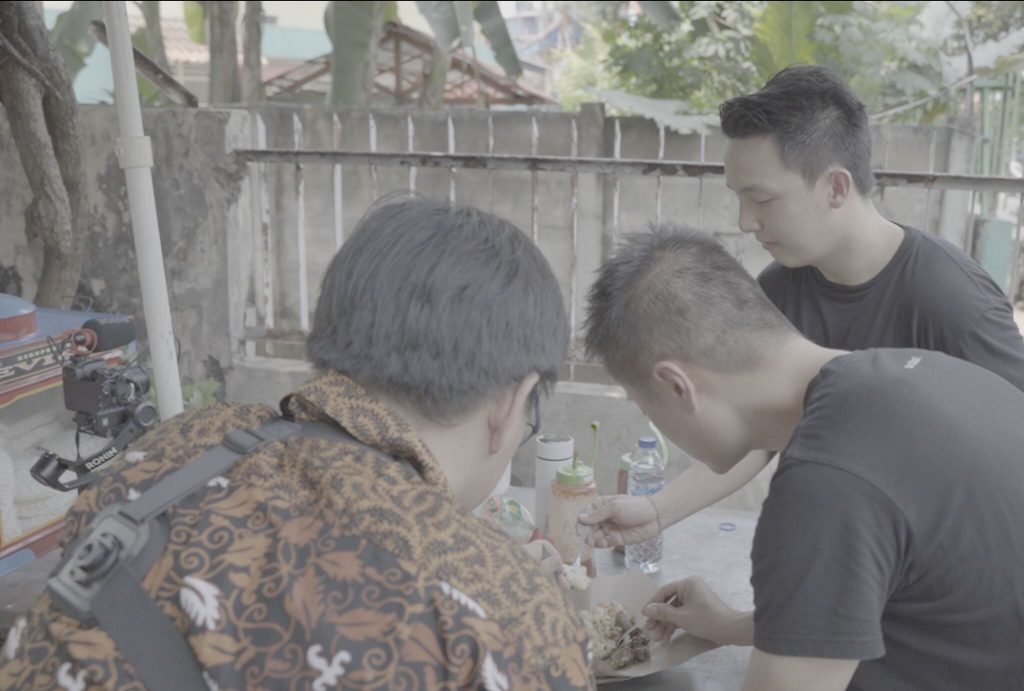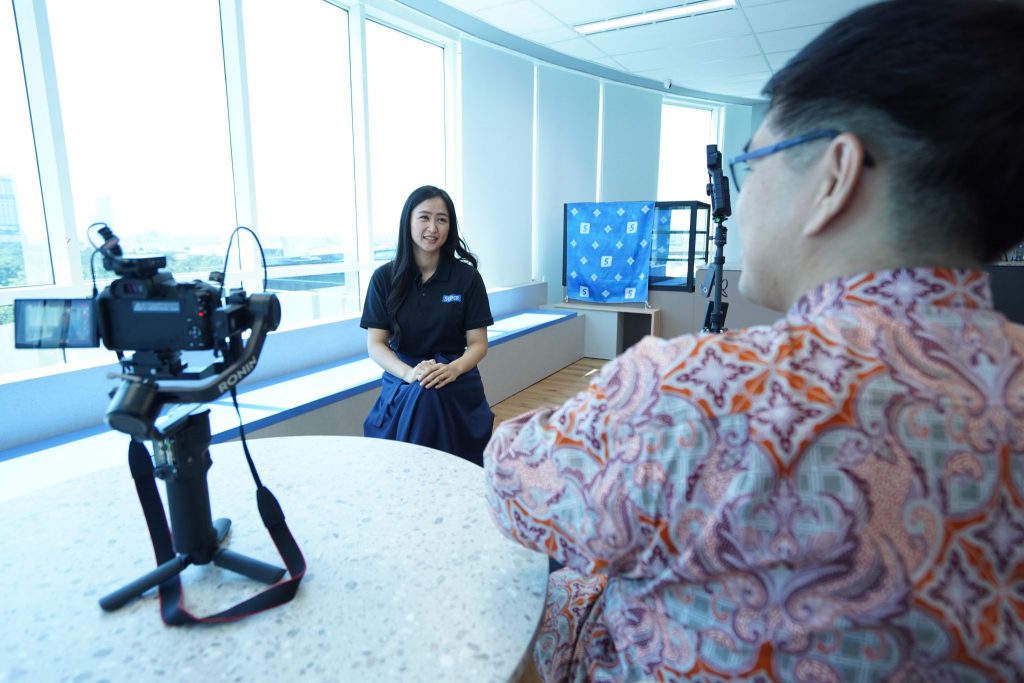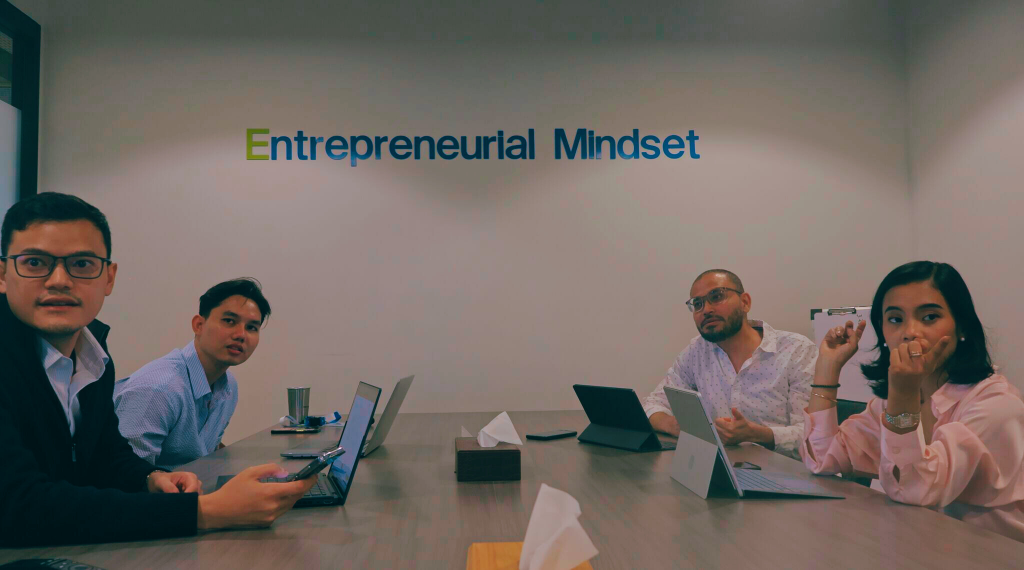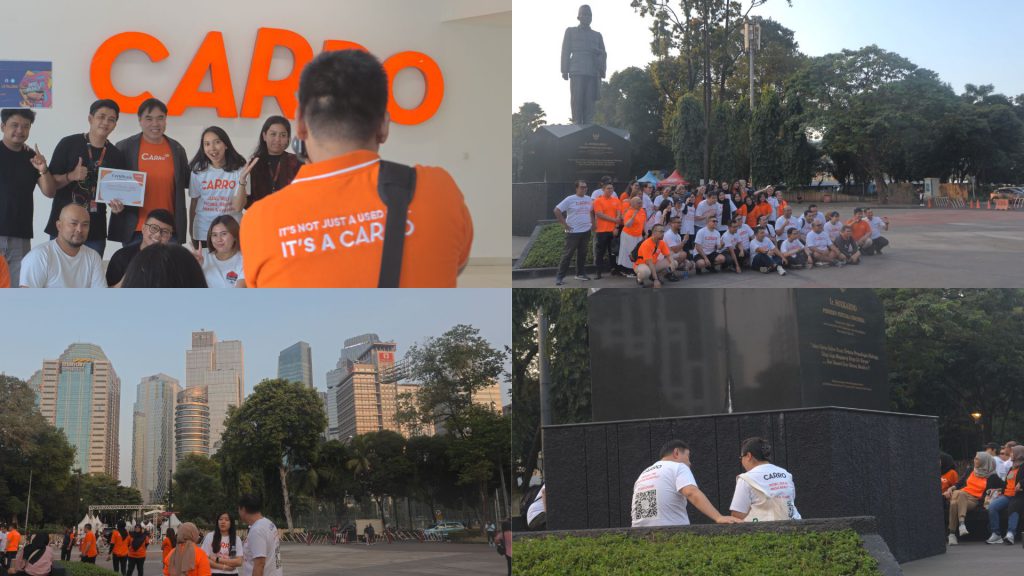Note: In June 2024, Insignia Ventures Partners resident storyteller Paulo Joquiño embarked on a journey to document the stories of the five entrepreneurs in Southeast Asia.
The last three to four months, I was filming a documentary on the stories of the Southeast Asia startup. And over F1 weekend, it launched!
Inspired by some of the stories I’ve had the privilege of covering on the On Call with Insignia podcast over the last five years, I got out of my Zoom window and flew to shoot where the action is really happening.
From warehouses in Surabaya to neighborhood tokos and auto workshops in Jakarta, HQs in Singapore and Manila, it’s nothing like I had ever done before, nor has ever been done by Insignia Ventures Partners (or a VC in this part of the world for that matter).
But why do this?
There are a number of motivations for this project, which I go into in the rest of this article, but the main reason is simple: to feel, even for a moment, that we are not alone in our endeavors (something which I found particular solace in as someone who is largely operating solo).
By retelling and exploring these stories, my hope is that we find common ground and shared lived experiences that give assurance at the very least, that it is possible to overcome whatever challenges lie ahead, especially for the entrepreneur reading this. It is worth noting as well that entrepreneurial endeavors are not limited to startup founders.
Anyone can embark on a journey of uncertain creation — a performer, a corporate manager, a scientist — and find unlikely threads of commonality with these entrepreneurs.
The journey of filming this documentary also reflects this motivation, with the many people who pitched in their feedback and support throughout, making it a less overwhelming project than it is.
While the documentary is out, it’s not the end of this project. There’s a lot more footage that didn’t make it to Final Cut (I wanted to keep the final product under an hour) but is worth sharing and talking about, so stay tuned for that.

Following Fazz founders Hendra and Tianwei on an impromptu walk across suburban Jakarta led us to a streetside food stall
Not about the business, but about the people
When I started this project three months ago, it was important to me that one could be an outsider to any of these industries and still appreciate the hard work these entrepreneurs are doing and why they keep at it (against all odds).
This was another reason why I embarked on this journey — to highlight the stories behind the narratives painted online with press releases, podcast interviews, and LinkedIn posts as well.
- There is a story of people coming together from various backgrounds and regions, drawn by a shared vision for their country.
- There is a story of a refugee whose upbringing shaped his approach to life and getting the seemingly impossible done, time and time again.
- There is a story of a scientist who, thanks to a longtime friend’s curiosity, found his calling as a business leader that brought him back to his heritage.
- There is a story of a mother who found a support system that gave her invaluable flexibility at a critical moment in her career and personal life.
- There is a story of a kid whose parents could barely afford to send him to school, a challenge that later inspired him, and many others, to make life better for kids like him.
Certainly, learning about the business paints more vivid color into motivations, conflicts, and resolutions throughout these stories.
But learning about the business is a feature of this documentary, not the purpose. It is instead learning about how a person’s story shapes the way they approach business, among other various aspects in life.

SuperApp VP of Strategic Partnerships and co-founder Debeasinta Budiman sharing her journey from growing up in a low-income city in Central Java to going abroad then returning to build her own business before crossing paths with CEO Steven who offered her the opportunity to live out her childhood dream
Not another story that gives answers, but finds new ways of asking old questions
A few years ago I was introduced to the book Built to Last, documenting a list of companies that were deemed to be the most enduring at the turn of the millennium. Many of these companies have been overtaken by big tech or have gone / are going through upheavals of various kinds in the last decade alone.
But what was interesting about the book was the question it posed. What does it take to build a visionary company? And the question behind the question: can a company truly be built to last?
Such is the holy grail for most venture-backed startups (as opposed to an IPO exit). It is not just about enduring through the years, but being sizable enough to make a lasting impact. It is not just about being disruptive at day one, but continuing to be innovative at scale (even when the startup has become the giant it once hoped to best).
For the purposes of this project, I decided that question was far too expansive to find an answer in three months. I don’t believe there is a definitive answer either, even with the plethora of thought leadership on the topic today.
But there is a version of that question that is more grounded on the present, more relatable to the uncertainty of early-stage startups, and hopefully easier to find meaningful answers to: How does the entrepreneur keep going?
This question is no longer tied to a specific company, but the entrepreneur themselves.
This question also drives straight to what early-stage venture capitalists will often say in talks about their strategy: “We invest in the entrepreneur.”
Specifically, VCs invest in the ability of the entrepreneur to keep going. Can they focus on what the company needs even if it means letting go of certain products or projects? Can they lead the startup into becoming a more mature organization over time? Can they navigate regulatory challenges that come with introducing new technology in a market?
VCs invest in entrepreneurial resilience. And this resilience seeps into every aspect of the business.
Against All Odds is but a subset of potential answers to the question of what keeps the entrepreneur going.
- How do they start from scratch after realizing that their first (second, third, or fourth) idea is not working?
- How do they take their company to the next level if that means competing with larger, more established brands?
- How do they make headway into an industry that does not believe in them?
- How do they ensure the company’s core principles remain alive as the company expands across markets and cultures?
- How do they convince people to join their company or even invest in them?

One answer to the question is the importance of having a leadership team able to drive innovation internally as much as the company is trying innovate the market around them. Pinhome leaders L-R: CCO Muhammad Hanif, Head of Strategy Qurrat Abu Ayub, CTO and co-founder Ahmed Aljunied, and CEO and co-founder Dayu Dara Permata
Not another scandal or cautionary tale, but the everyday reality of being a startup entrepreneur in Southeast Asia
What do you think about making a show on the lives of Southeast Asia startup founders?
Before embarking on this project, I had the opportunity to talk to some docu producers who have done shows on OTT platforms, albeit nothing about startups before.
One thing they found interesting with the idea is the opportunity to showcase stories about entrepreneurs from Southeast Asia that aren’t just dramatic scandals or similarly cautionary tales. There was an opportunity to tell stories that everyday people from this part of the world could identify with and be inspired by, even if they aren’t entrepreneurs themselves.
And so it was important to spend time outside of the boardrooms and headquarters to “touch grass” and really capture what it’s like for these leaders in their day to day lives:
- Whether it’s following them going home on the dot to spend time with their kid
- Following them on the MRT to pick up a co-founder from the airport
- Following them to grab lunch on the side of the road or grab dinner at their favorite place
A lot of pre-production was spent with people on the ground figuring out what these routines are for these entrepreneurs. I wanted to anticipate what moments would line up with the filming schedules and see what opportunities would be there for me to film.
But sometimes these couldn’t be planned and I just had to go with the flow, like this fun run post-town hall I only found about the day before the Carro team was doing, leading to a bunch of unplanned sequences from the town hall all the way to the GBK arena (normally used for sports events like the Asian Games, but also for concerts like Coldplay and Taylor Swift’s tours).

A series of unplanned sequences with Carro Indonesia CEO Bryan Tan, PhD from the town hall all the way to the GBK arena (normally used for sports events like the Asian Games, but also for concerts like Coldplay and Taylor Swift’s tours)
One of the questions I’ve asked founders on the On Call with Insignia podcast this year is who they would hire (dead or alive) to be their executive coaches. As one would expect, the answers are typically business / sports figures from the West.
Hopefully the movie serves as a look into the day to day of Southeast Asian entrepreneurs from different walks of life and in the future similar questions would get more local answers as well!
If you have ideas on how to take this documentary to a bigger screen or a different format, email me at paulo@insignia.vc.
Paulo Joquiño is a writer and content producer for tech companies, and co-author of the book Navigating ASEANnovation. He is currently Editor of Insignia Business Review, the official publication of Insignia Ventures Partners, and senior content strategist for the venture capital firm, where he started right after graduation. As a university student, he took up multiple work opportunities in content and marketing for startups in Asia. These included interning as an associate at G3 Partners, a Seoul-based marketing agency for tech startups, running tech community engagements at coworking space and business community, ASPACE Philippines, and interning at workspace marketplace FlySpaces. He graduated with a BS Management Engineering at Ateneo de Manila University in 2019.